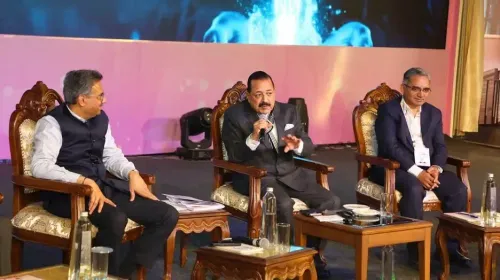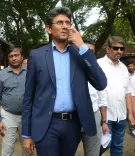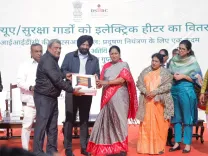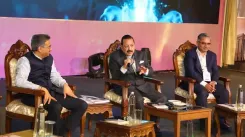Is India Advocating for a WTO-Centered Fair Trade System at the SCO Trade Ministers’ Meeting?
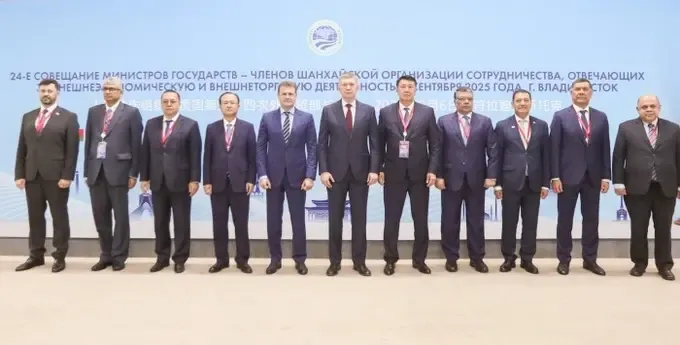
Synopsis
Key Takeaways
- India advocates for a fair WTO-centered trade system.
- Proposes digital economy initiatives to support innovation.
- Stresses the importance of sustainable development.
- Highlights the significance of MSMEs in global trade.
- Focuses on the AVGC sector as a growth engine.
New Delhi, Sep 7 (NationPress) India has underscored the necessity for an open, fair, inclusive, and non-discriminatory multilateral trading system grounded in WTO principles at the Shanghai Cooperation Organisation (SCO) Trade Ministers’ Meeting held in Vladivostok, Russia. This meeting comes amidst ongoing global trade uncertainties resulting from the US tariff issues, as reported by the Commerce and Industry Ministry on Sunday.
During the meeting, India pointed out the potential to utilize the collective strengths of the SCO for mutual prosperity along with the urgent need for export diversification, reducing reliance, and establishing resilient supply chains.
Amitabh Kumar, Additional Secretary at the Department of Commerce, who represented India’s Commerce Minister, advocated for coordinated efforts to boost trade flows, mitigate vulnerabilities, and foster inclusive growth across a region that comprises 42 percent of the global population and 17.2 percent of international trade.
He stressed the importance of a development-focused agenda, which includes a permanent solution regarding Public Stockholding (PSH) for food security, effective Special & Differential Treatment (S&DT) for developing nations, and the reinstatement of a fully functional two-tier WTO dispute resolution system. He also emphasized the significance of services trade and the temporary movement of skilled professionals, adhering to national laws and transparency, to bolster economic growth and enhance the involvement of MSMEs in global supply chains.
India has highlighted the critical need for diversifying and mitigating risks in supply and production chains through geographical distribution, interoperable logistics, reliable market access, and improved connectivity while respecting national sovereignty and territorial integrity. It was noted that persistent trade imbalances need to be addressed by providing better market access, collaborating on standards, and streamlining trade facilitation. India warned against the weaponization or misuse of export-related measures, which could create artificial scarcity, distort markets, or disrupt supply chains, asserting that their measured and transparent application is vital to maintain trust in international trade.
Regarding the digital economy, India proposed SCO workstreams aimed at establishing fair, transparent, and predictable regulatory frameworks, voluntary cooperation on best practices, and capacity building for secure and innovation-driven digitalization. India showcased its achievements in Digital Public Infrastructure (DPI), including UPI for real-time payments, India Stack for identity and consent management, and ONDC for unbundled digital commerce. These initiatives were presented as cost-effective, standards-based, and replicable models designed to lower MSME costs, broaden market access, and facilitate real-time settlements through pilot projects with trusted partners.
On the topic of sustainable development, India stressed the principle of Common but Differentiated Responsibilities and Respective Capabilities (CBDR-RC) and highlighted the Mission LiFE (Lifestyle for Environment) initiative. It was emphasized that climate action must be backed by financial resources and affordable technology flows. India also cautioned that trade-linked climate measures should not lead to arbitrary or unjustified discrimination.
Furthermore, India spotlighted the AVGC sector (Animation, Visual Effects, Gaming, and Comics) as a catalyst for job creation, exports, and inclusive growth. It referenced its successful hosting of the inaugural World Audio Visual and Entertainment Summit (WAVES 2025) earlier this year, which drew participants from over 100 countries.
The Summit initiated various initiatives, including Waves Bazaar for global media collaboration, WaveX for funding creative startups, and Creatosphere for talent development through the Create in India Challenge. With support from simplified regulatory frameworks and 17 existing co-production agreements, India aims to position itself as a premier hub for global film production.


